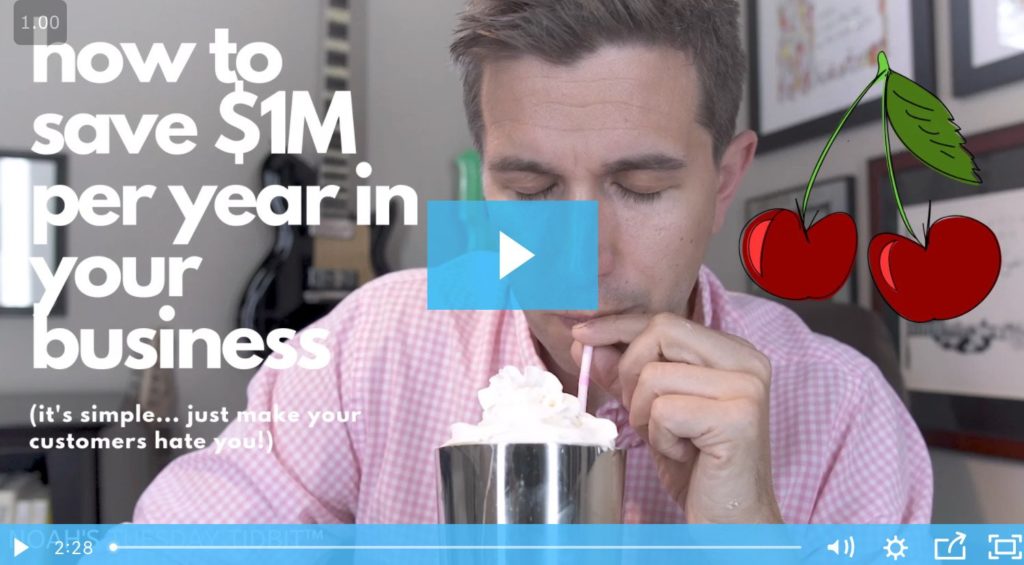Yesterday (Monday) was a holiday here in Canada. It's been wet and cold, and everybody is getting pretty restless.
In between the rain and keeping the kids occupied, I had a couple of client calls.
One of those calls was with a global client's sales team. We talked about the speed of change, the need to shift gears, and the fantastic job everyone had done adapting to the new norm. With a salesforce unable to be on the road selling, they're still seeing record sales growth.
Nobody could have prepared for this.
Except if you did…
I was speaking to another client experiencing rapid growth during these unprecedented times, and he said something that made me smile.
He said:
"You know, Noah… Nobody in their right mind could have prepared for anything like this, but you asked us a Tidbit question last year around this time that we took seriously. Answering that challenge put us in a pretty comfortable position when everything went to hell in a handbasket."
I didn't know what question he was referring to until he said, "Remember, you can't cut the cherries!"
Please take a second, head over to this link and watch the 2-minute video I published around this time last year. Then come back and read on for this week's challenge.
https://noahfleming.com/how-to-save-1m-year-by-making-your-customers-hate-you/
The question I asked was this:
Identify two scenarios that would mean a "downturn" for your business. Maybe that's a tariff increase. Perhaps it's a high local unemployment rate that would reduce your current customer base.
Whatever it is, ask the following: "If we ran into a 2-year downturn, how could we be better off at the end of it than our competitors?"
He explained to me that their team workshopped this question together, came up with wildly different scenarios than the current one, but started to put plans in place for a massive economic downturn.
And guess what happened?
This week, since it's a Holiday, I'm taking the easy way out.
Your challenge is to revisit this question again.
But now from the current state of the world we're in.
The questions to now ask are:
"How are we going to better off at the end of this than our competitors?"
"What specific steps are we taking RIGHT NOW that will make us stronger and better in a post-COVID world?"
Get your team together. Have the discussion, and shoot me a message. I'd love to hear how it goes.
